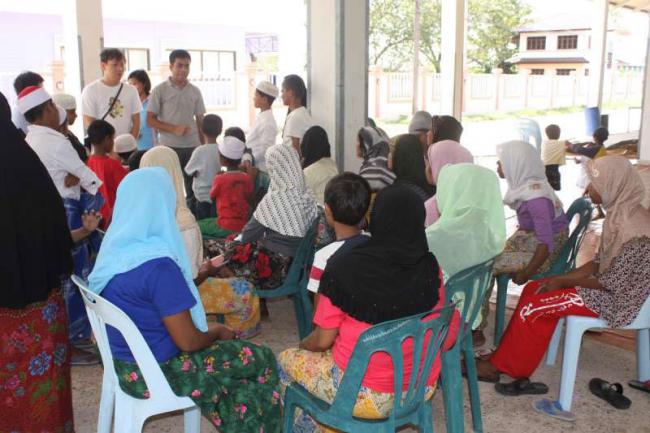“I am appalled at reports that Thailand, Indonesia and Malaysia have been pushing boats full of vulnerable migrants back out to sea, which will inevitably lead to many avoidable deaths,” said UN High Commissioner for Human Rights Zeid Ra’ad Al Hussein in a statement releasedon Thursday.
He added, “The focus should be on saving lives, not further endangering them.”
While Zeid praised Indonesia for disembarking 582 migrants on 10 May, and Malaysia for disembarking 1,018 the following day, he said the “incomprehensible and inhumane” policy of “pushbacks” was endangering lives.
He also spoke against countries’ plans to criminalize vulnerable migrants and asylum seekers who have crossed borders irregularly.
“Governments in South-East Asia need to respond to this crisis from the premise that migrants, regardless of their legal status, how they arrive at borders, or where they come from, are people with rights that must be upheld,” he said.
He added, “Criminalizing such vulnerable people, including children, and placing them in detention is not the solution.”
Around 6,000 Rohingya and Bangladeshi migrants are believed to remain stranded at sea in precarious conditions in the region and the High Commissioner said the individual circumstances of all migrants and asylum seekers at international borders should be assessed, and appropriate protection provided according to international human rights and refugee law, including ensuring that the principle of non-refoulement is upheld.
He called for further action against traffickers and abusive smugglers and welcomed the announcement that Thailand would host a regional meeting on irregular migration in the Indian Ocean on 29 May.
In discussions on comprehensive responses, the regional meeting would seek to address root causes, one of which, he said, was the importance of addressing the serious human rights situation in Rakhine state, in Myanmar.
“Until the Myanmar Government addresses the institutional discrimination against the Rohingya population, including equal access to citizenship, this precarious migration will continue,” he said.
He added, “Whether fleeing persecution, discrimination, poverty or other human rights violations, or moving in search of decent work and a life with dignity, all migrants who take to the seas in such perilous circumstances are in need of protection.”
A coherent, human rights-based regional response was urgently needed and the association of Southeast Asian Nations (ASEAN) could play a leadership role in that regard.
“I urge the participating governments to ensure that their responses are based on international human rights and refugee law,” Zeid said.
He added, “This is a complex and multi-dimensional issue requiring a holistic response, which will include stepped-up search and rescue efforts, the timely and safe disembarkation of migrants in distress, and access to appropriate human rights protection safeguards."
He said, "Dangerous interception practices, including pushing back boats that are trying to land, must be scrupulously avoided.”
A statement released by the UN Children’s Fund (UNICEF) pointed out the obligations held by Southeast Asian countries under the Convention on the Rights of the Child, which all those States had ratified.
“Any action that may impact on children must be guided by the best interests of those children, no matter who they are and where they come from,” the statement said.
It further said, “The [Convention] reuires governments to ensure all children are cared for in a safe place, with access to education, health, social and legal services, irrespective of their refugee or migrant status.”
Article 22 of that Convention demands that Governments ensure protection and humanitarian assistance for children seeking refugee status and UNICEF’s statement stressed the increased vulnerabilities faced by child migrants.
“Children should not be criminalised or subject to punitive measures solely because of their migration status, nor should they be detained for purposes of migration control,” said the statement.
It also said, “All actions in regard to child migrants must be guided by the best interests of every one of these children, every step of the way.”
Last year, the number of people leaving Myanmar and Bangladesh by boat is estimated to have climbed to around 53,000. Some 920 migrants are known to have perished in the Bay of Bengal between September 2014 and March this year.
They have been predominantly Rohingya fleeing persecution from Rakhine State in Myanmar, with increasing numbers of impoverished Bangladeshi migrants taking to the seas over the last year.
Photo: UNHCR/V. Tan
